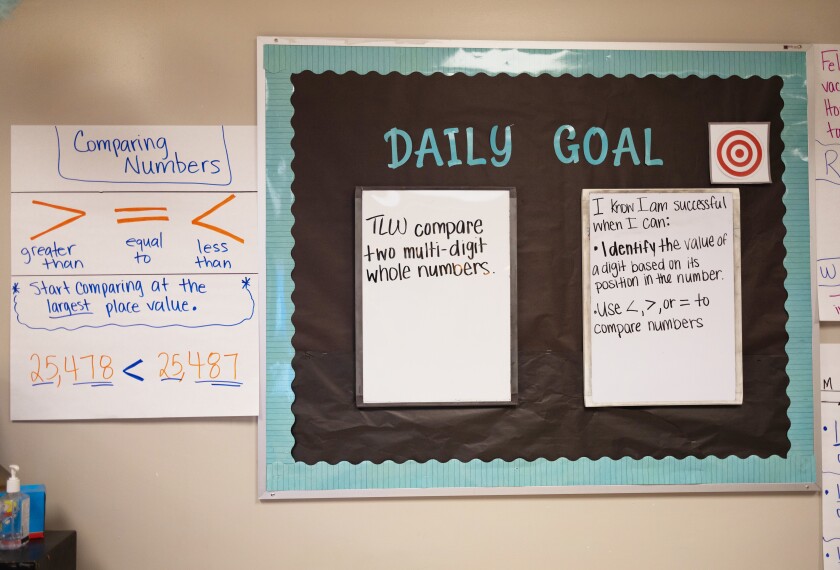Teaching math, at least in part, by having students solve real-world problems is becoming increasingly popular in schools. In fact, California recently adopted a controversial framework that embraces the approach.
However, educators are still divided over whether it’s the best way to go, according to an EdWeek Research Center survey conducted this spring.
About half of the teachers, principals, and district leaders surveyed—49 percent—agreed that students learn math best through procedures rather than solving big problems, the survey found, including 13 percent who said they “completely agreed.”
On the other hand, about 52 percent disagreed with the statement, including 12 percent who “completely disagreed.”
To be sure, even experts who prefer one approach over the other say that aspects of both are necessary to help students understand math.
Although the debate over the two approaches has sometimes been dubbed the “math wars,” “I don’t think it needs to be as polarizing of a choice,” said Zack Hill, a math curriculum writer and education consultant.
“I lean more toward a constructivist approach,” also sometimes referred to as problem-solving, Hill said. “But I also understand that there are certain things that ... children will not intuit,” such as expanded form, a way of writing numbers to see the math value of individual digits. “They’re not going to come up with that term on their own. There are certain things that we need to teach kids explicitly. I think for me what it’s about [is] giving them the time and the space to reason around it.”
Janaki Nagarajan, who teaches in the Renton school district near Seattle, also prefers teaching math from a problem-solving perspective. But she doesn’t believe teachers should limit themselves to just one approach.
Even when educators prioritize problem-solving, “there’s obviously instruction that involves teaching kids how to multiply,” she said.
But she sees a difference between learning basic procedures “in a way that’s just like, ‘here, you need to know this, but I’m not going to explain to you what this is or why this makes sense or how it’s connected to anything,’” and instead telling students, “‘Here’s what multiplication is, how do we use it? How do we apply it to things?’”
Nagarajan’s district sets aside time for what it calls a “math workshop” where students play “fluency games” that allow them to practice using particular math concepts in an engaging way.
“It’s not like ‘Oh, we’re not giving them the building blocks,’” she said. Instead, “you’re giving them in ways that kids are interested in.”

Data analysis for this article was provided by the EdWeek Research Center. Learn more about the center’s work.





